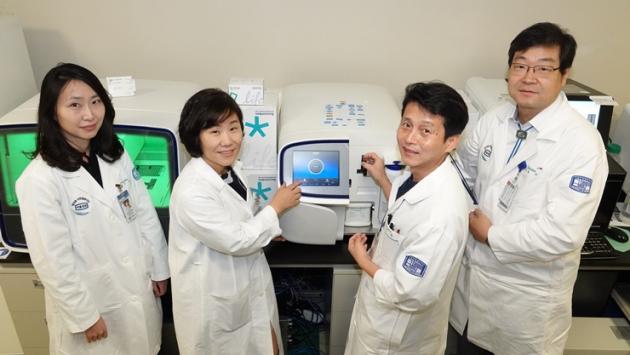St. Mary's Hospital announced Monday that it has secured the largest gene panel in the Asia-Pacific region to provide patients with personalized, tailored medicine.

Such a feat is the result of the hospital’s "Center for Genetic Diagnosis and Testing" joining the Thermo Fisher Scientific’s Global Research Collaboration Program. St. Mary’s is the first medical institution to join the program in the Asia-Pacific region.
Other institutions such as the University of Berlin Institute for Pathology, the Center for Molecular Pathology at the University of Heidelberg, and the University of Basel, Switzerland, are currently participating in the research collaboration program.
By joining the program, the hospital has acquired more than 3,500 proven types of cancer and clinical diagnostic reagents developed by various global medical institutions.
For precision medical research, it is essential to secure diverse and reliable panels, which should include the cancer genes that are most relevant, for diagnostic analysis.
Also, it is vital to construct various panels that contain global gene information because repeated analysis using standard protocols leads to consistent analysis results even in a large number of sample tests.
Starting with next-generation sequencing (NGS)-based acute leukemia test panel last year, the center has developed an NGS-panel for various hematologic tumors.
As a member of the Thermo Fisher Scientific Program, the hospital will collaborate in the field of blood cancer, immuno-oncology, liquid biopsy, and sequencing platform research, and receive technical support to apply the analysis panels to its experiments effectively.
The hospital also plans to develop biomarkers and diagnostic panels, establish clinical guidelines for cancer diagnosis and extend clinical diagnosis for the screening of target cancer patients, which in turn will help doctors to find optimal diagnosis and treatment plan based on NGS gene analysis results.
Also, the hospital aims to introduce liquid biopsies as clinical tests by strengthening various tumor-related researches through the program’s global network.
“Through this program, St. Mary's Hospital, which has accumulated experience for blood cancer diagnosis and treatment at a global level, is expected to accelerate its researches in various diagnostic fields such as immuno-tumors and liquid biopsies,” said Professor Kim Myung-shin, director of St. Mary’s Center for Genetic Diagnosis and Testing.
Based on the results of the research, it will become possible to predict the possibility of disease by precisely analyzing individual genes and prescribe the most appropriate treatment for each patient, she added.

